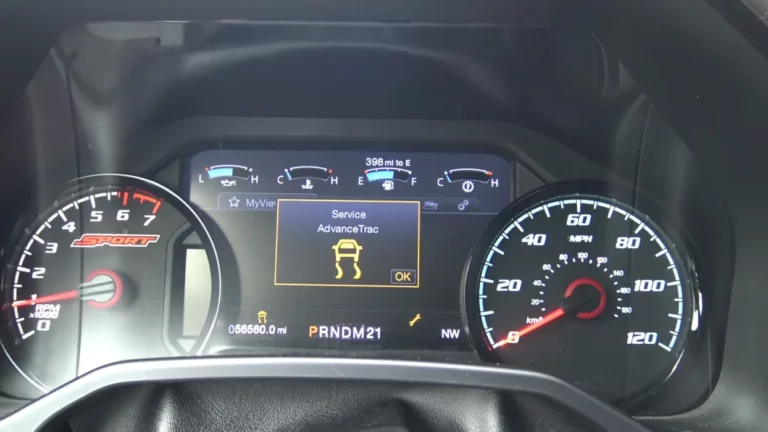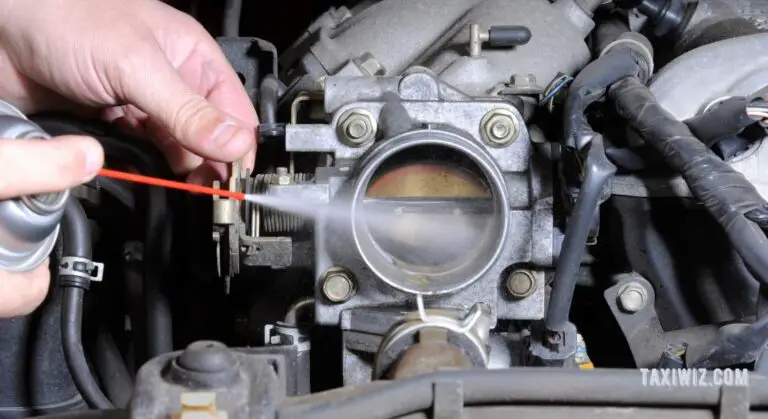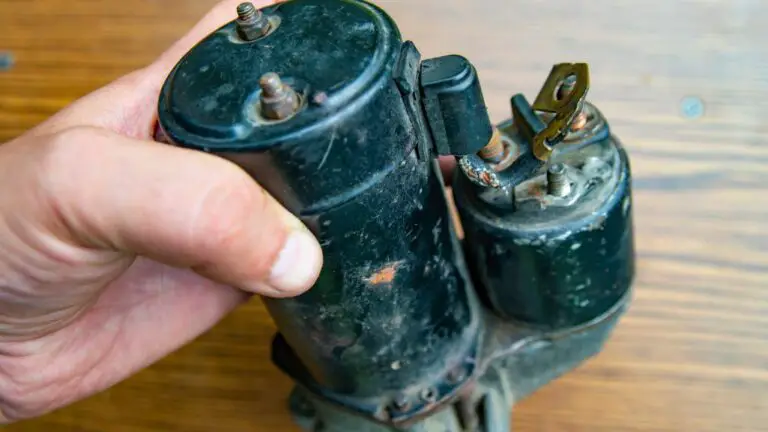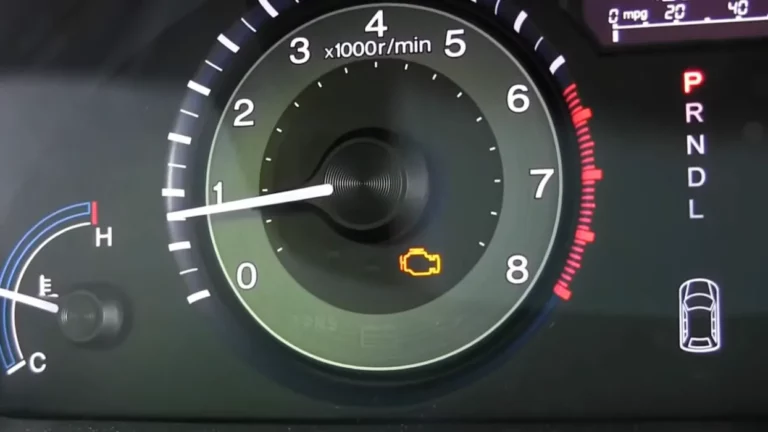Can ABS Cause Brake Pedal To Go To The Floor? Explained
My braking system was dysfunctional recently. And when I examined it, I discovered my brake pedal had gone down to the ground.
Many people wonder if there is a relationship between a brake pedal going to the ground with ABS.
In this article, we’ll explore what ABS is, how it works, and how it can affect your brake pedal. We’ll also cover the causes, symptoms and solutions of the brake pedal going to the floor. So buckle up and let’s dive in!
What is ABS?
An anti-lock brake system (ABS) helps to prevent your car wheels from getting locked up during braking. This can cause a loss of steering control and increase stopping distance.
ABS accomplishes this by modulating brake pressure to each wheel independently, based on signals from sensors that monitor wheel speed and other factors. This is made up of valves, an electric control unit, a pump, and wheel speed sensors.
How Does ABS Work?
Whenever you apply the brakes in a car without ABS, the brake pads squeeze against the rotors, creating friction that slows down the wheels. If you brake too hard or on a slippery surface, the wheels can lock up, meaning they stop rotating altogether.
This can cause the car to skid and lose control, potentially leading to an accident. Here ABS prevents wheels from locking up by using a computer-controlled hydraulic system to adjust the brake pressure to each wheel.
If a wheel begins to slow down too quickly, indicating that it’s about to lock up, ABS reduces the brake pressure on that wheel. This allows the wheel to continue rotating, maintaining steering control and reducing the risk of skidding.
Read Also: What Causes Brown Sludge In Radiator And How To Fix It
Can ABS Be A Reason For Brake Pedals To Drop Down To The Ground?
ABS does not directly affect your brake pedal going to the ground. Instead, ABS is designed to prevent the brake pedal from going to the floor. When the ABS detects that a wheel is about to lock up, it releases the brake pressure momentarily, which prevents the pedal from going to the floor.
However, it is important to note that a malfunction in the ABS can contribute to the brake pedal going to the floor. If the ABS module or the hydraulic control unit fails, such as a leak or air in the brake lines, it can result in your brake pedal feeling spongy or soft or even going right down to the floor.
What Causes the Brake Pedal Going to the Floor?
There are several causes the brake pedal to go to the floor. Let’s discuss them below with solutions.
1. Air Found In The Brake Lines
The brake system in your car uses hydraulic pressure to transfer force from the brake pedal to the brake calipers. If there is air in the brake lines, this can prevent the hydraulic pressure from building up, causing the brake pedal to go all the way to the floor.
Solutions
If you suspect that air is present in your brake lines, you need to bleed your brakes to remove the air.
2. Brake Fluid Leak
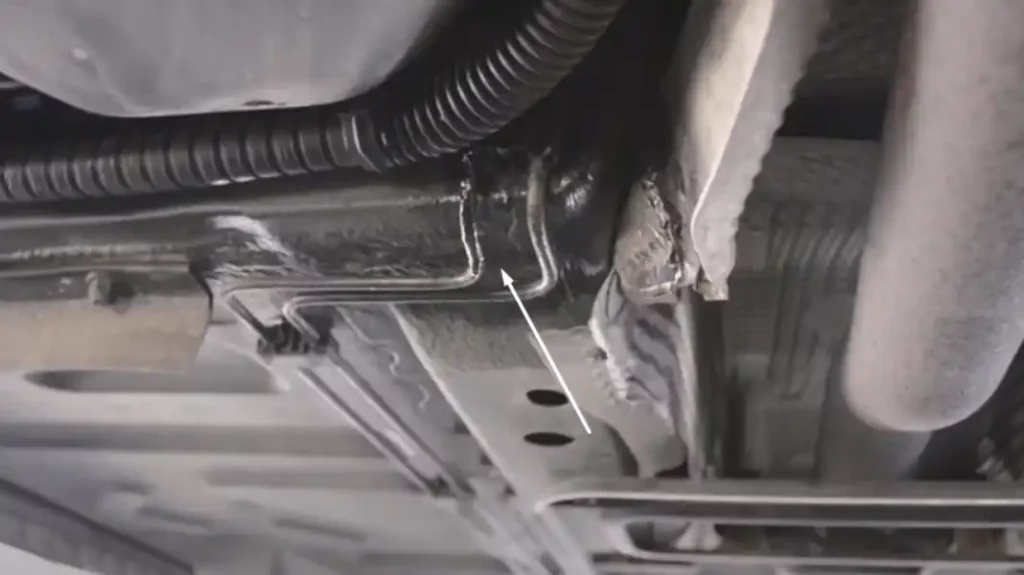
Another possible cause of a brake pedal going to the ground is leaking brake fluid. If the brake lines are leaking fluid or any of the brake components, you will lose a lot of brake fluid and you’ll most likely experience a spongy-like brake pedal.
Solutions
Step 1: Locate the source of the leak. It could be a damaged brake line, a leaking caliper or wheel cylinder, or a damaged brake hose.
Step 2: Replace the damaged component or repair the leak, and then bleed the brakes to remove any air that may have entered the system.
Read Also: 7 Main Causes For Coolant Pouring Out Of Bottom Of Car!
3. Worn Brake Pads
The brake pads in your car can wear down, causing the brake pedal to feel soft or spongy. If the brake pads are worn down to the point where they are not providing enough friction, this can cause the brake pedal to go right down to the floor.
Solutions
Step 1. Inspect the brake pads and replace them if they are worn.
Step 2. Make sure the brake calipers are functioning properly and not sticking.
4. Faulty Master Cylinder
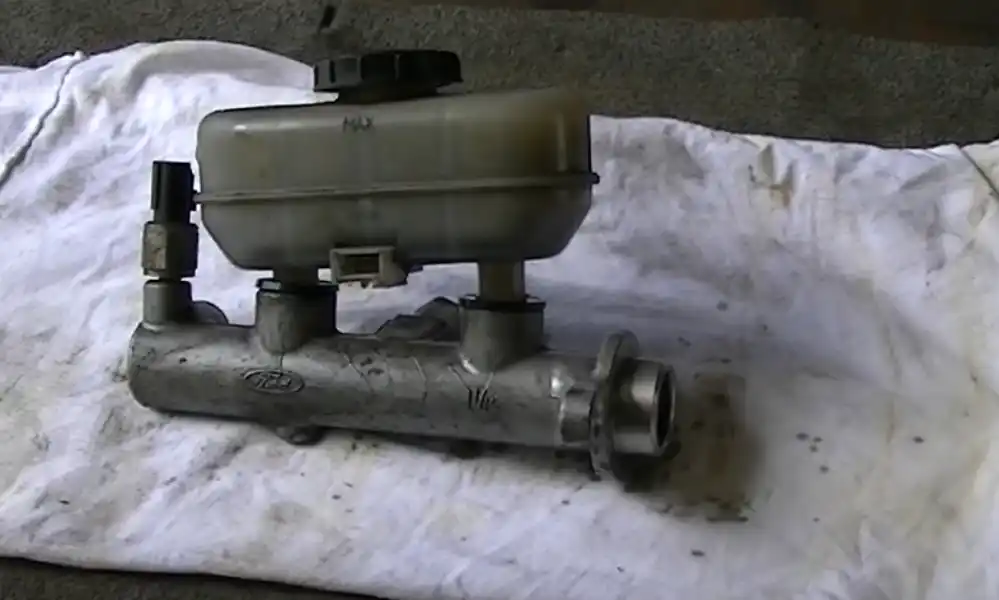
The master cylinder is an important component of the brake system, as it is responsible for generating the hydraulic pressure that is needed to stop the car. If the master cylinder is faulty or worn out, it can cause the brake pedal to go down to the floor.
Solutions
Replace the master cylinder with a new one. [Our Pick: ⅞ inches Bore Master Cylinder]
You can watch the video below to have a grasp of how to fix a sinking brake pedal.
Symptoms of Brake Pedal Going to the Floor
Here are some symptoms that can occur when the brake pedal goes to the floor:
- Soft or Spongy Brake Pedal: If the brake pedal feels soft or spongy when you press down on it, it is a sign that there is air in the brake lines. It can also be a leaking brake fluid or worn brake pads.
- Brake Warning Light: If the brake warning light on your dashboard comes on, this can be an indication that there is a problem with your brake system.
- Brakes Not Responding: If you press down on the brake pedal and your car does not slow down or stop as expected, this is a very dangerous situation. This can be a sign that there is a serious problem with your brake system.
Read Also: Reasons Why Oil In Coolant Reservoir But Car Not Overheating
Benefits of ABS
Some benefits of ABS in the braking system and vehicles include:
Improved Braking Performance
ABS helps reduce the stopping distance of the vehicle, allowing the driver to stop the car more quickly and safely.
Enhanced Vehicle Stability
ABS helps the driver maintain control of the vehicle and prevent skidding, especially in wet or slippery road conditions.
Increased Driver Confidence
ABS provides the driver with a more predictable and stable braking experience, which can increase confidence and reduce the risk of accidents.
Reduced Wear and Tear on Tires
As ABS prevents the wheels from locking up and reduces the amount of skidding and sliding, it can result in less wear and tear on the tires.
Better Steering Control
During hard braking, ABS allows the driver to maintain steering control of the vehicle, which is crucial for avoiding obstacles and collisions.
Improved Overall Safety
ABS is an important safety feature that can help prevent accidents and reduce the severity of injuries in the event of a collision. It is now mandatory in most countries for all new vehicles to be equipped with ABS.
Frequently Asked Questions (FAQs)
Below are some questions people also ask about brake pedals sinking to the floor.
Can ABS Result In Brake Pedal Pulsation?
Yes, ABS (Anti-lock Brake System) can result in brake pedal pulsation. ABS is a small cylindrical magnets enclosed by a single coil and fixed within the brake disc support system. They tend to accumulate metallic fragments from the brake pads.
However, this led to a deterioration in the signals transmitted to your ABS car computer, resulting in incorrect activation of the ABS. The indication of this problem is the pulsating brake pedal.
Why Does the Brake Pedal Sink To The Ground, But The Fluid Is Full?
The brake booster may be faulty. This component amplifies the mechanical force exerted on the pedal, which is then transmitted to the master cylinder.
However, if there is a blockage or a leak that impedes the additional mechanical force, the pedal will not function as designed, and the brakes may not work correctly.
What Should You Do If Your Brake Failed With ABS?
Provided your car is equipped with antilock brakes, attempting to press the brake pedal down completely and holding it there may prove effective. If the pedal happens to sink to the floor, try pumping it a few times and then pressing it down fully.
Although it may not result in a significant decrease in speed, this technique can still help slow down your vehicle.
Final Words
ABS is a critical safety system that helps prevent wheels from locking up during sudden braking, allowing the driver to maintain control of the vehicle. While ABS does not directly cause the brake pedal to go to the floor, a malfunction in the ABS can contribute to this problem.
It is essential to address any issues with the brake system immediately and have it inspected by a qualified mechanic to ensure your safety on the road. Remember, the brake system is critical, and any malfunction can have dire consequences.
Related Posts

